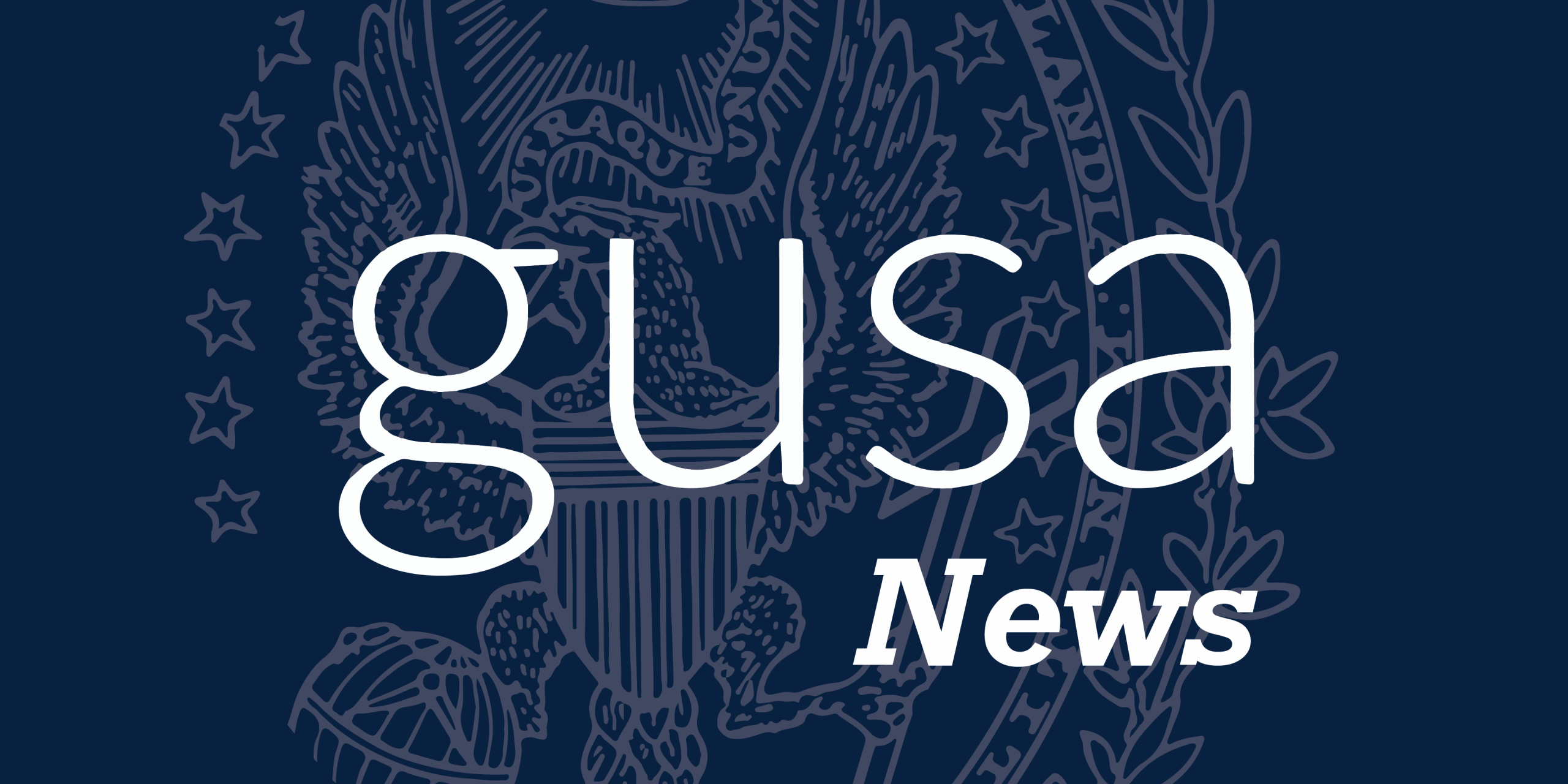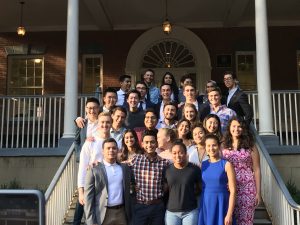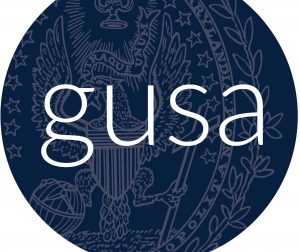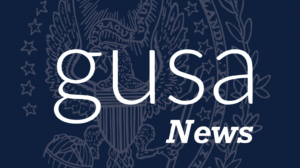The GUSA Election Commission imposed sanctions on the executive campaign of Darius Wagner (CAS ’27) for improper flyer placement Monday afternoon. Another complaint was filed against the campaign of Saahil Rao (SFS ’27) Monday evening for overspending, but the commission ruled Tuesday night that they were not in violation.
With the sanctions, the Wagner-Missaghi campaign will be placed at the bottom of the ballot list and was temporarily banned from flyering until 8 a.m. Wednesday morning. Originally, the campaign was banned from “place[ing] additional flyers or any promotional materials” around campus for the remainder of campaigning, according to an email sent to the candidates by the GUSA Election Commission and obtained by the Voice. However, it was reduced to a temporary flyering ban yesterday.
The sanctions are in response to a complaint filed against Wagner’s campaign on Monday. The complaint alleged that campaign flyers placed in certain locations, namely a group of flyers on the exterior of Epicurean, violated the University Speech and Expression policy’s Time, Place, and Manner Guidelines. The Election Commission also received a complaint last week about the Wagner campaign’s brief feature on the official College of Arts and Sciences Instagram page, the commission chair told the Voice.
Rao, who filed the Monday complaint, said that he was concerned about the “laxness on the rules” showed by Wagner’s campaign, he wrote to the Voice.
“All we want is a free and fair election where the rules are followed,” Rao wrote. He added that his goal was to get the posters taken down.
In a text to the Voice, Election Commission chair Vonn Russell (CAS ’27) said that he thinks the sanctions placed on Wagner’s campaign were warranted.
“We believed they were appropriate and matched the circumstances given the Commission received two credible and fairly serious complaints about how Darius’ campaign was being promoted,” Russell wrote. Russell added that he is not aware of any past uses of these two sanctions combined.
Russell noted that the violations did not rise to the level of “the most serious sanction,” which would be removal from the ballot.
Wagner said that the sanctions are too severe. In an email to the election commission, he called the ban on flyering “disproportionate, extreme, and unprecedented,” arguing that the campaign should have first received a warning.
Wagner is contesting the sanctions, according to an email sent to the election commission and provided to the Voice. In both the email and an interview with the Voice, Wagner said that he believes that their flyering was not in violation of policy, noting that flyering outside of Darnall Hall is permitted in the university’s guidelines, of which he believes the wall of Epicurean is considered part.
“There was no egregious, out of the way flyering that would merit such a, you know, harsh strike down reaction,” Wagner said.
Wagner added that he and his campaign have not reported questionable flyering by other candidates.
“The Rao-Weaver complaint was filed in bad faith and represents a double standard. Rao-Weaver, and many other campaigns, have fliers in technically noncompliant areas,” Wagner wrote in the email responding to the complaint. “If the interpretation Rao-Weaver offers were applied evenly, most campaigns would face similar or worse consequences.”
In a message to the Voice, Rao wrote that he’s sure his campaign “messed up slightly here and there,” but that they’ve been careful about trying to follow the rules.
“What prompted our reporting was not minor violations […] but a 5×5 flyer put up on the Epis wall, which is a very large one put up in a location I’ve never seen used by any club or GUSA campaign,” Rao said.
Noting that candidates are limited to $300 for campaign spending, Wagner is unsure if his campaign will be reimbursed for the cost of the removed flyers. Besides the financial cost, he emphasized the cost of the time and effort to flyer, which has now been prohibited for the remainder of the campaigning period.
“It’s just kind of unfortunate, because it’s restricting our resources to efficiently campaign,” Wagner said. “We lost time, we lost money resources, doing something that was explicitly legal, and then we were immediately sanctioned.”
As the complaint and subsequent sanctions join a list of scandals around this year’s executive election, Wagner hopes students focus on the campaigns themselves to guide their vote.
“We’re going to stay positive, really telling students our plans and ideas, and I hope they continue to engage us. We have a campaign platform and policy that we’re excited about,” Wagner said. “This campaign, that’s all we’re going to be focused on.”
One day after the Wagner decision, the complaint against Rao, which alleged that he overspent the $300 limit through his promotional event with Georgetown University Grilling Society, was found to be without merit. The Election Commission, the GUSA Ethics and Oversight Committee, and the Center for Student Engagement made this decision.
Rao told the Voice that he agreed with the Commission’s decision.
The email that the commission sent Tuesday night announcing the result admonished the complaint itself.
“Complaints such as this one, which was acknowledged to be at least in part retaliatory in nature severely hinder the Election Commission’s ability to prioritize the ballot, the Town Halls requested by GUSA, communication with all candidates and with the student body, and promotion of the election,” the commission wrote.
The complaint against Rao was filed hours after the sanctions were placed on Wagner’s campaign. The Election Commission noted in their email that while the Rao campaign’s promotional event happened last week, “the complaint itself was filed very abruptly with just over 48 hours before the ballot opened.”
This is not the first time in recent history that complaints of campaign violations have marred GUSA executive elections. In 2023, the GUSA Senate decertified an executive election and demanded a redo of the process following campaign violation concerns.
In a text to the Voice, Russell emphasized the importance of having a process for complaints during the election process.
“The Election Commission takes all complaints seriously and didn’t hesitate to investigate either of the two major tickets that have gotten complaints this election cycle,” Russell wrote. “Our goal first and foremost is to provide the most equitable voting experience for all students.”
GUSA executive voting will take place Oct. 22-Oct. 24 via email.






